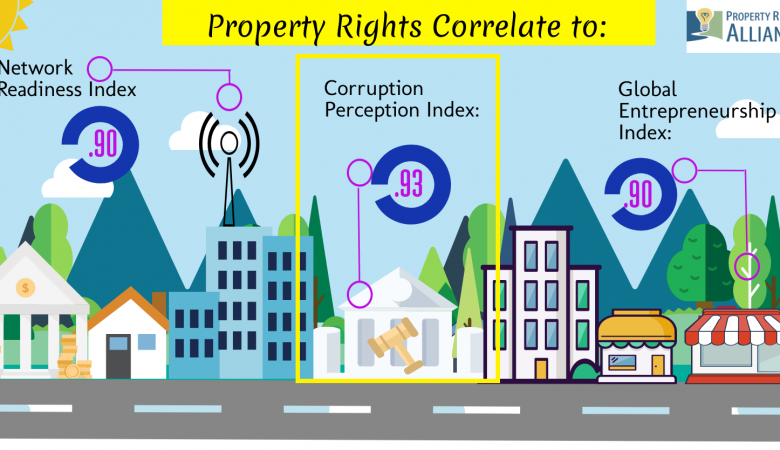Corruption Index Spells Trouble for Property Rights in 2019
This week Transparency International released the 2018 Corruption Perceptions Index. This year the report found the U.S. dropped four points. Zoe Reiter, Acting Representative to the U.S. at Transparency International, deemed the lower ranking as a “red flag.”
The CPI scores for Hungary and Turkey decreased by eight and nine points over the last five years. According to the CPI, “These ratings reflect the deterioration of rule of law and democratic institutions, as well as a rapidly shrinking space for civil society and independent media, in those countries.”
Map of 2018 CPR
Source: Transparency.org
The perception of corruption matters. When there are high levels of corruption in a country, physical and intellectual property rights will likely be trampled upon or non-existent, and when corruption levels are low, physical and intellectual property rights will enjoy strong protections.
The 2018 International Property Rights Index found significant correlations between physical and intellectual property rights. Specifically, the IPRI found a Pearson Correlation Coefficient of 0.74 for physical property rights and 0.84 for intellectual property rights with the CPI. Overall, the IPRI found a strong 0.93 coefficient with the CPI, the highest correlation with any measure.
This correlation means that physical and intellectual property rights are closely tied to perception of corruption. Delia Ferreira Rubio, Chair of Transparency International, said that “Corruption is much more likely to flourish where democratic foundations are weak and, as we have seen in many countries, where undemocratic and populist politicians can use it to their advantage.”
Furthermore, high levels of corruption and weak property rights protections appear to lead to unstable democracies and even authoritarian regimes. Consider this analysis from CPI:
It reveals that the continued failure of most countries to significantly control corruption is contributing to a crisis in democracy around the world. While there are exceptions, the data shows that despite some progress, most countries are failing to make serious inroads against corruption.
The CPI methodology is based primarily on 13 different surveys of democratic and legal institutions.
While the 2019 International Property Rights Index is still being compiled we can expect similar movements for the United States, Turkey, Hungary due to the high correlation.

